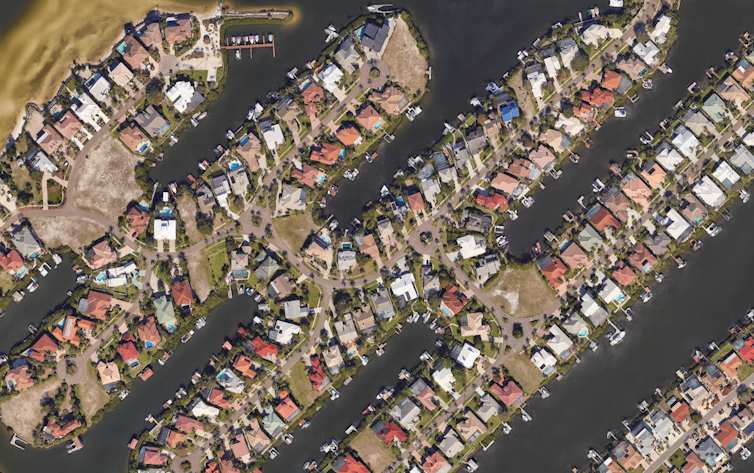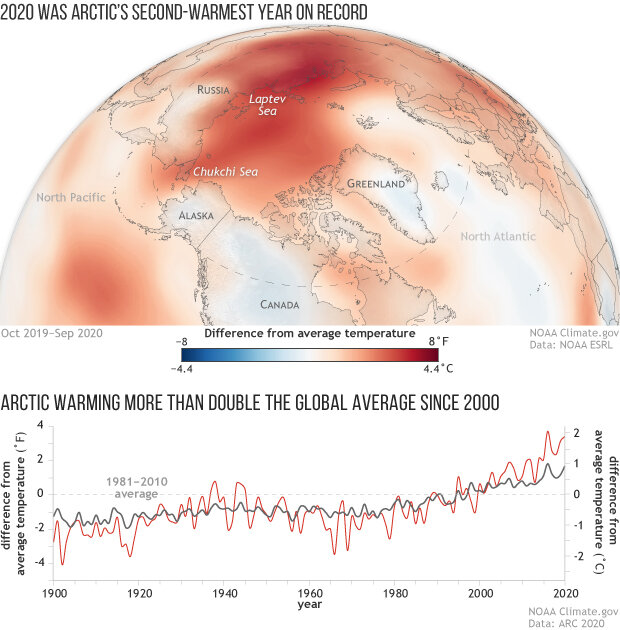Climate Change Law and Policy Project
Produced by Prof. Edward Richards, Visit the project’s website

Biden Administration Proposal to Restructure the National Flood Insurance Program – 2023
FEMA has proposed a major revision of the NFIP, including increasing the subsidy for low and middle-income insureds. This poses a wicked problem – without the increased subsidy, these insured will either have to go bare or move. With the subsidy, they will be encouraged to stay and if they move, someone else can move in without bearing the cost of the risk. This will further increase the incentive to move into high-risk areas, which will likely have depressed pricing. (Except for beach and riverfront properties, which tend to sell at a premium regardless of flood risk.)
Full legislative proposal (pdf)
In the Legislative Package Reform, the letter to Congressional leaders included the following four principles to outline the Administration’s priorities for multi-year NFIP reauthorization:
- Ensuring more Americans are covered by flood insurance by making insurance more affordable to low-and-moderate income policyholders.
- Building climate resilience by transforming the communication of risk and providing Americans with tools to manage their flood risk.
- Reducing risk, losses, and disaster suffering by strengthening local floodplain management minimum standards and addressing extreme repetitive loss properties.
- Instituting a sound and transparent financial framework that allows the NFIP to balance affordability and fiscal soundness.
Army Corps of Engineers – Background Information
Court Recognizes Reliance Interest in Federal Flood Control Projects
Ideker Farms, Inc. v. United States, 71 F.4th 964, 980 (Fed. Cir. 2023); Court of Federal Claims – Ideker Farms, Inc. v. United States, No. 14-183L, 2018 WL 1282417 (Fed. Cl. Mar. 13, 2018)
This case recognizes a reliance interest in flood protection from federal flood control projects, rejecting the net value analysis of St. Bernard Par. Gov’t v. United States, 887 F.3d 1354 (Fed. Cir. 2018). This arose on the Missouri River when the Corps changed the river management to protect endangered species. Owners of property that was worthless before the original flood control program sued when some of the property was flooded due to the change in river management. Under the net benefits test, they would not have a taking because the net value of the land was still higher. The court rejects that in favor of a sort of reliance test, saying that unless the original flood control project contemplated reflooding the land, reflooding is a taking.
Louisiana Sues the National Flood Insurance Program
CRS: Options for Making the National Flood Insurance Program More Affordable
Introduction
Many Members and stakeholders have expressed concern about the perceived affordability of flood insurance premiums, concerns which have come to the fore as the Federal Emergency Management Agency (FEMA) introduces a new pricing system known as Risk Rating 2.0. This new rating system, which is designed to move all National Flood Insurance Program (NFIP) policies to risk-based pricing, represents the biggest change to the way the NFIP calculates flood insurance premiums since its inception.1 Nationally, according to FEMA, in the first year 77% of policyholders will see an increase in their premiums and 23% of policyholders will see a decrease under Risk Rating 2.0. 2 These impending rate raises, which vary from $120 to $240 or more annually, have increased congressional interest in reducing the cost burden of flood insurance on policyholders.
Fort St. Philip Natural Diversion and the Destruction of Land
Pictorial Account and Landscape Evolution of the Crevasses near Fort St. Philip, Louisiana (Rotated Maps – Port St. Phillip crevasse study)
This report documents how a natural diversion – a break in the river levee – lead to significant land loss, not land gain.
“Quantifying the effects of active natural and constructed crevasses is critical to the planning and success of future ecosystem restoration activities. This document provides a historical overview of landscape changes within the vicinity of the natural crevasses near Fort St. Philip, Louisiana. A significant event influencing landscape change within the Fort St. Philip study area was the breaching of the eastern levee of the Mississippi River. Initially, the river water that was diverted through these crevasse channels physically removed significant marsh areas within the study area. These initial direct impacts were succeeded by several decades of larger regional loss patterns driven by subsidence and other episodic events (e.g, hurricanes and floods), and recent localized land gains. These increases in land area are potentially the long-term results of the Fort St. Philip crevasses, and the short-term impacts of delta management activities. However, for the majority of the 1956-2008 period of analysis, the crevassing of the eastern bank of the Mississippi River levee was a loss accelerant in the Fort St. Philip area.”
FHA establishes standards for private flood insurance for FHA backed mortgages
Acceptance of Private Flood Insurance for FHA-Insured Mortgages
This final rule amends Federal Housing Administration (FHA) regulations to allow mortgagors the option to purchase private flood insurance on FHA-insured mortgages for properties located in Special Flood Hazard Areas (SFHAs), in satisfaction of the mandatory purchase requirement of the Flood Disaster Protection Act of 1973 (the FDPA). The FDPA, as amended, requires the owner of a property mapped in a SFHA, and located in a community participating in the National Flood Insurance Program, to purchase flood insurance as a condition of receiving a mortgage backed by the Government Sponsored Entities (GSEs), Department of Veterans Affairs (VA), U.S. Department of Agriculture (USDA), or Federal Housing Administration (FHA). In consideration of public comments, HUD’s experience implementing the program, and HUD’s goals of aligning with the Biggert-Waters Act while mitigating risk and protecting taxpayers’ funds, this final rule adopts HUD’s November 23, 2020, proposed rule with minor changes.
Baked-In Sea Level Rise
Beaches and Sea Level Rise
Videos
The Science of Waves on Water – Physics of an Ocean Wave
“The Beaches Are Moving” is a 60-minute documentary that focuses on North Carolina’s barrier islands. It describes common beach processes, as well as processes that are unique to the barrier island system. Produced in 1983 by UNC-TV, this documentary focuses on the work of Duke marine geologist Orrin H. Pilkey Jr.
Articles
Hernandez, M., S. Scarr, and K. Daigle. “The messy business of sand mining explained.” (2021).
Hurricane Harvey Takings Cases
Federal Circuit finds that downstream plaintiffs can state a takings case in the downstream Hurricane Harvey flooding cases:
Milton v. United States, 36 F.4th 1154 (Fed. Cir. 2022)
This is based on finding a property interest in a flowage easement through the plaintiff’s property. By calling this a property interest, the Court eliminates the 702 defense from the FTCA and maybe the discretionary function defense of the FTCA, depending on whether the Court of Federal Claims finds that this meets the test of Arkansas Game and Fish for a temporary taking.
In re Upstream Addicks & Barker (Texas) Flood-Control Reservoirs, 146 Fed. Cl. 219 (2019)
Coastal home buyers are ignoring rising flood risks, despite clear warnings and rising insurance premiums

Google Earth
Risa Palm, Georgia State University and Toby W. Bolsen, Georgia State University
Read More →








